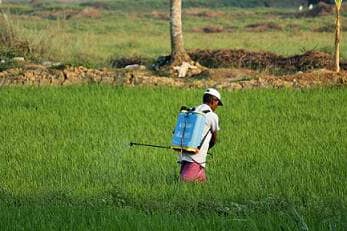- EC published 405 recommendations for the draft CAP strategic plan of Bulgaria
- Bulgaria seeks another postponement of environmental measures and requirement for decreased use of pesticides in 2023
- Animal health insurance fund to be established in Bulgaria
- Discussion on innovative food started in Bulgaria
and more in our latest Agri NewsFlash Week 26, 2022.
EC published 405 recommendations for the Bulgarian strategic plan
The European Commission published a letter with recommendations for the draft of Bulgaria’s CAP strategic plan for 2023-2027, reports Balgarski Fermer weekly. Bulgaria is asked to justify choosing 600 ha as the line for redistributive payment. It is also asked to reconsider the change of the per-farmer payment for the additional redistributive payment. The experts in Brussels find the change ratios to be too high and not well justified. Bulgaria is asked to add a condition for admissibility for investment in energy for own consumption, such as improved energy efficiency. The EC clearly specifies that an ordinary replacement of old machines cannot be considered admissible. Bulgaria is urged to consider strengthening the Strategic Plan as far as pesticides are concerned by clarifying the expected contribution of the respective interventions and including practices for integrated pest control so as to reduce the use of chemical products for plant protection and the risk thereof, and the use of more hazardous plant protection products.

Bulgaria seeks another postponement of environmental measures and requirement for decreased use of pesticides in 2023
The planned reduction in the use of pesticides by 40-50% will have dire economic consequences in Bulgaria as it is trying to ensure sustainable harvest and competitiveness of its agriculture in the current global economic conditions, that call for sufficient, accessible and quality food for all. Bulgaria shares the view that setting national goals must rest on a detailed assessment of the impact and take into consideration the different starting points of the Member States, the country-specific conditions, geographic location, climate, crop composition and pests, as well as the lack of alternative plant protection methods that are efficient, safe and accessible, said the Ministry of Agriculture.
Animal health insurance fund to be established in Bulgaria
The Centre for Assessing the Foodchain Risks recommends that a national animal health insurance fund be established with State Fund Agriculture, reports Agrozona. Such a health insurance fund can operate on the principle of shared responsibility between the State and the owners of farm animals, a mutual fund of a kind in the meaning of the applicable regulations, and be authorized by the established procedure by the Accreditation Agency. Such an animal health insurance fund will provide funding for compensating farmers in the event of outbreaks of animal diseases and cover fully their losses.